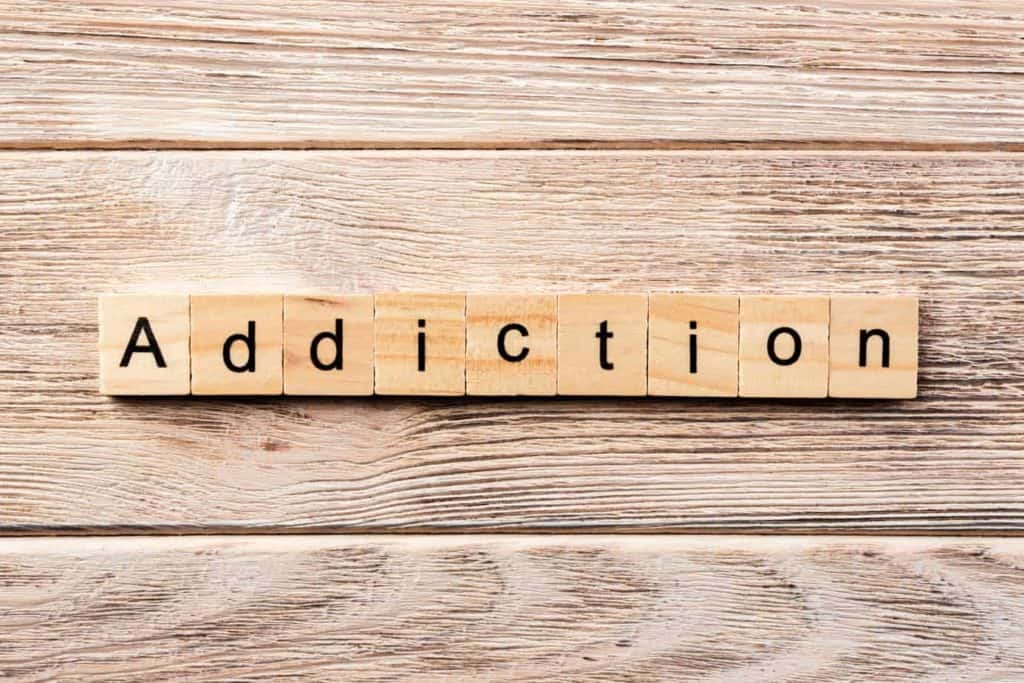K2 Synthetic Marijuana Abuse, Addiction, & Symptoms
What is K2 Synthetic Marijuana?
Synthetic cannabinoids (“synthetic marijuana,” “Spice drug,” “K2”) are various artificial chemicals that some people may use as an alternative to marijuana. Unfortunately, these seemingly innocent little packages of fake weed can cause serious side effects that are very different from those of marijuana. Synthetic cannabinoid products can be toxic. As a result, people who smoke these products can react with rapid heart rate, vomiting, agitation, confusion, and hallucinations. Some have to get help from emergency medical services or in hospital emergency departments or intensive care units. Synthetic cannabinoids bind to the same receptors to which cannabinoids ( THC and CBD) in cannabis plants attach.

Manufacturers sell these products in colorful foil packages and plastic bottles to attract consumers. In addition, they market these products under a wide variety of specific brand names. For several years, synthetic cannabinoid mixtures have been easy to buy in drug paraphernalia shops, novelty stores, gas stations, and over the internet. Because the chemicals used in them have no medical benefit and a high potential for abuse, authorities have made it illegal to sell, buy, or possess some of these chemicals. Manufacturers try to sidestep these laws by changing the chemical formulas in their mixtures.
Research shows that synthetic cannabinoids affect the brain much more powerfully than marijuana. Because it is creating unpredictable and, in some cases, life-threatening effects including nausea, anxiety, paranoia, brain swelling, seizures; hallucinations, aggression, heart palpitations, and chest pains. Easy access and the belief that synthetic cannabinoid products are natural and therefore harmless have likely contributed to their use among young people. However, FDA has become aware of reports of severe illnesses and deaths linked to this drug. This is resulting from the use of synthetic cannabinoid (marijuana) products that have been contaminated with brodifacoum, an anticoagulant commonly used in rat poison.

Get Your Life Back
Find Hope & Recovery. Get Safe Comfortable Detox, Addiction Rehab & Dual Diagnosis High-Quality Care.
Hotline(844) 597-1011Is Synthetic Cannabis Still Sold in Stores?
In July 2012, a national ban was enacted against synthetic cannabinoids in the U.S. Local and state laws also regulate synthetic cannabinoids. While synthetic cannabinoids are illegal in the U.S. and the product may still be sold illegally on the streets. Spice or K2 has been marketed as incense in colorful three-ounce pouches or vials and labeled “not for human consumption.” Spice or K2 became increasingly popular with young adults in the mid-2000’s because it was legal and easily obtainable from convenience stores, smoke shops, and online.
Popular belief is that “Spice drug” or “K2” is safe, non-toxic, and results in a psychoactive (mind-altering) effect similar to regular marijuana. However, case reports and surveys have identified severe toxicities that occur with the use of synthetic cannabinoids, and some users have required emergency room treatment. Furthermore, the chemicals synthesized to produce synthetic cannabinoids can be more potent than natural THC found in raw marijuana and may have more dangerous side effects.
Synthetic Cannabinoids List
There are numerous and various street names for synthetic cannabinoids as drug manufacturers try to appeal to and entice youth and young adults by labeling these products with exotic and extravagant names. Synthetic marijuana is sold under a wide range of names and brands around the world.
- Spice
- K2
- Blaze
- RedX Dawn
- Paradise
- Demon
- Black Magic
- Black Mamba
- Spike
- Mr. Nice Guy
- Ninja
- Zohai
- Dream
- Genie
- Sence
- Smoke
- Skunk
- Serenity
- Yucatan
- Fire
- Crazy Clown
- AK47
- Incense
Methods of Use
The Synthetic Drug Abuse Prevention Act is part of the FDA Safety and Innovation Act of 2012, signed into law by President Obama. This permanently places 26 types of synthetic cannabinoids and cathinones into Schedule I of the Controlled Substances Act (CSA). Schedule I drugs are those that have a high potential for abuse and no currently accepted medical treatment use in the U.S. It also doubled the maximum period of time that the Drug Enforcement Administration (DEA) can administratively schedule substances under its emergency scheduling authority, from 18 to 36 months.

FDA is advising consumers not to purchase or use K2 Synthetic Marijuana or Black Mamba Premium, a product promoted for sexual enhancement. FDA identified this product during an examination of international mail shipments. FDA laboratory analysis confirmed that Black Mamba Premium contains sildenafil, the active ingredient in the FDA-approved prescription drug Viagra, used to treat erectile dysfunction (ED). This undeclared ingredient may interact with nitrates found in some prescription drugs such as nitroglycerin and may lower blood pressure to dangerous levels. Men with diabetes, high blood pressure, high cholesterol, or heart disease often take nitrates.
The most common way to use synthetic cannabinoids is to smoke the dried plant material. Users also mix the sprayed plant material with marijuana or brew it as tea. Other users buy synthetic cannabinoid products as liquids to vaporize in e-cigarettes.
Get Help. Get Better. Get Your Life Back.
Searching for Accredited Drug and Alcohol Rehab Centers Near You?
Even if you have failed previously and relapsed, or are in the middle of a difficult crisis, we stand ready to support you. Our trusted behavioral health specialists will not give up on you. When you feel ready or just want someone to speak to about therapy alternatives to change your life call us. Even if we cannot assist you, we will lead you to wherever you can get support. There is no obligation. Call our hotline today.
(844) 597-1011k2 Synthetic Marijuana Effects
K2 synthetic marijuana act on the same brain cell receptors as THC (delta-9-tetrahydrocannabinol), the mind-altering ingredient in marijuana. So far, there have been few scientific studies of the effects of synthetic cannabinoids on the human brain. Still, researchers know that some of them bind more strongly than marijuana to the cell receptors affected by THC and produce much stronger effects. The resulting health effects can be unpredictable and dangerous.
Because the chemical composition of many synthetic cannabinoid products is unknown and may change from batch to batch, these products are likely to contain substances that cause dramatically different effects than the user might expect.
Some Effects Similar Produced by Marijuana
- Elevated Mood
- Relaxation
- Altered Perception: awareness of surrounding objects and conditions
- Symptoms of Psychosis: delusional or disordered thinking detached from reality
Psychotic Effects
- Extreme Anxiety
- Confusion
- Paranoia: excessive and unreasonable distrust of others
- Hallucinations: sensations and images that seem real though they are not
Some Other Health Effects Of Synthetic Cannabinoids
People who have used synthetic cannabinoids and have been taken to emergency rooms have shown severe effects, including:
- Rapid Heart Rate
- Vomiting
- Violent Behavior
- Suicidal Thoughts
K2 vs Marijuana
Natural marijuana and synthetic marijuana differ greatly due to their chemical base. Natural marijuana contains THC, while K2 contains synthetic cannabinoids. THC stands for delta-9-tetrahydrocannabinol or Δ-9-tetrahydrocannabinol (Δ-9-THC).
Although some k2 synthetic marijuana products only list “all natural” ingredients (like herbs) on their packages, scientific analyses have shown that manufacturers spray these products with synthetic cannabinoids. Although chemically similar to THC, synthetic cannabinoids affect the brain receptors in a different (and often more dangerous) way.
For example, some are much stronger than THC, because they bind to the cell receptors more forcefully. This can cause a variety of adverse side effects, including high blood pressure, seizures, vomiting, blurred vision, severe anxiety, paranoia, violent behavior, suicidal thoughts, heart attacks, and even death.
Many k2 synthetic marijuana manufacturers produce the drug overseas in cheap labs with low standards. Products differ dramatically from one another and from batch to batch. Very few k2 synthetic marijuana on the market are tested on humans before being sold to consumers, making them extremely unpredictable.
Users of k2 synthetic marijuana risk their health every time they use the drug. In addition, researchers believe k2 synthetic marijuana remains in the body for a significant period of time, and thus its long-term effects on the human body are unknown.
As most k2 synthetic marijuana products originate in Asia or Russia and contain frequently altered chemical compositions, they often avoid U.S. governmental bans, unlike marijuana. In addition, medical providers sometimes struggle to treat victims due to the unknown chemicals in the consumed product. They simply treat the symptoms and then wait for the drug’s influence to subside.

First-class Facilities & Amenities
World-class High-Quality Addiction & Mental Health Rehabilitation Treatment
Rehab Centers TourRenowned Addiction Centers. Serene Private Facilities. Inpatient rehab programs vary.
Addiction Helpline(844) 597-1011Proven recovery success experience, backed by a Team w/ History of:
15+
Years of Unified Experience
100s
5-Star Reviews Across Our Centers
10K
Recovery Success Stories Across Our Network
- Low Patient to Therapist Ratio
- Onsite Medical Detox Center
- Comprehensive Dual-Diagnosis Treatment
- Complimentary Family & Alumni Programs
- Coaching, Recovery & Personal Development Events
Synthetic Cannabinoid Addiction
Yes, synthetic cannabinoids can be addictive. The following symptoms are a few of the effects a user will experience after stopping use:
- Headaches
- Anxiety
- Depression
- Irritability
Behavioral therapies and medications have not specifically been tested for the treatment of addiction to these products. Health care providers should screen clients for possible co-occurring mental health conditions.
Can You Overdose on Synthetic Cannabinoids?
Yes. An overdose occurs when a person uses too much of a drug and has a dangerous reaction that results in severe, harmful symptoms, or death. For example, the use of synthetic cannabinoids can cause:
- Toxic Reactions
- Elevated Blood Pressure
- Reduced Blood Supply to the heart
- Kidney Damage
- Seizures
Death may also occur when dangerous synthetic opioids, such as fentanyl are added to the packaged mixture without the user knowing it.
Cannabinoid or Spice Drug “K2” Compounds
The cannabinoid compounds in these synthetic agents act on the same cell receptors as those affected by the THC in natural marijuana. Identified compounds include:
- HU-210
- CP 47,497 and Homologs
- JWH-018
- JWH-073
- JWH-398
- JWH-250
- Oleamide
Some of the synthesized compounds in synthetic cannabinoids bind much more strongly to THC receptors than regular marijuana, leading to more robust, unpredictable, or dangerous effects. For example, some synthesized compounds have been 100 times more potent than the average THC found in marijuana. In addition, as with many illicit designer drugs, the chemical composition may be unknown, and are may combine some products with other toxic chemicals.
The chemicals used in these products have a high potential for abuse and no medical benefit. As a result, the Drug Enforcement Administration (DEA) has designated many active chemicals found most frequently in synthetic cannabinoids as Schedule I controlled substances the most restrictive Schedule, making it illegal to sell, buy, or possess them. Manufacturers attempt to evade these legal restrictions by substituting different chemicals in their mixtures, while the DEA monitors and updates the list of banned cannabinoid derivatives.
Synthetic Cannabinoids And Bleeding Risk
The Illinois Department of Health [1] reported several cases of severe bleeding in people who had used synthetic cannabinoids, such as the Spice drug or K2, contaminated with blood thinners. Subsequently, the Centers for Disease Control and Prevention (CDC) [2] posted an Outbreak Alert warning of life-threatening vitamin K-dependent antagonist bleeding disorders linked with synthetic cannabinoid use in Illinois and other states.
Laboratory testing confirmed that clients were exposed to brodifacoum (an anticoagulant or blood thinner in rat poison) because of the contaminated synthetic cannabinoids. In reports, since this time, other anticoagulants have been identified in these manufactured products. Symptoms that can expect with ingestion of synthetic cannabinoids laced with anticoagulant rat poison or other blood thinners can include:
- Bruising
- Excessive Bleeding
- Nosebleeds
- Bleeding Gums
- Coughing up or Vomiting Blood
- Pink or Red Urine due to blood in the urine
- Dark-Colored Stools or Blood in Stools
- Weighty Menstrual Bleeding
- Back or Stomach Pain
- Confusion
- Fainting
- Loss of Consciousness
If you have consumed synthetic marijuana and have signs or symptoms of bleeding, call 911 or go to an emergency room immediately; tell the doctor you have smoked synthetic marijuana and that you are bleeding, or maybe bleeding. Follow the advice of a healthcare provider. This is a problematic and possibly life-threatening situation. Do not delay treatment.
Laboratory tests can determine the extent of your anticoagulation and may start long-term vitamin K (phytonadione) treatment to reverse the effects of the blood thinner. However, there have been reports that Spice or K2 may be laced with other illicit substances, such as fentanyl, which can rapidly lead to respiratory depression and death. In addition, synthetic cannabinoids are created illegally, are not regulated by any authority, and may be contaminated with any number of poisonous substances.

World-class, Accredited, 5-Star Reviewed, Effective Addiction & Mental Health Programs. Complete Behavioral Health Inpatient Rehab, Detox plus Co-occuring Disorders Therapy.
CALL(844) 597-1011End the Addiction Pain. End the Emotional Rollercoaster. Get Your Life Back. Start Drug, Alcohol & Dual Diagnosis Mental Health Treatment Now. Get Free No-obligation Guidance by Substance Abuse Specialists Who Understand Addiction & Mental Health Recovery & Know How to Help.
Dual Diagnosis Treatment for K2 Synthetic Marijuana Addiction
Reports claim synthetic marijuana can be addicting – users who have had even unpleasant experiences crave the additional drug because regular users may experience withdrawal symptoms. It is estimated that synthetic marijuana drug users are almost five times more likely to have a heart attack in the first 60 minutes after taking the drug than at any other time during the day. In addition, prolonged drug use can have severe physical and psychological effects on you, so it is essential to seek treatment as soon as possible. Inpatient drug rehab offers intensive care that can help you get through the early stages of withdrawal promptly.
Medically-Assisted Detox
Detox is often considered the first stage of treatment. It will help you navigate the complicated process of alcohol withdrawal, but it doesn’t address patterns of thought and behavior that contribute to drug use. Various treatment approaches and settings can help provide the ongoing support necessary to maintain long-term sobriety after you complete detox.
Cravings are very common during detox and can be challenging to overcome. This often leads to relapse. Constant medical care provided during inpatient treatment helps prevent relapse. Clinicians can provide necessary medication and medical expertise to lessen cravings and the effects of withdrawals.
Psychotherapy
Several different modalities of psychotherapy have been used in the treatment of mental health disorders along with addiction, including:
- Cognitive Behavioral Therapy (CBT) – is an effective treatment that involves making changes in both the patterns of negative thoughts and the behavioral routines which are affecting the daily life of the depressed person for various forms of depression.
- Dialectical Behavioral Therapy – is a comprehensive mental health and substance abuse treatment program whose ultimate goal is to aid patients in their efforts to build a life worth living. The main goal of DBT is to help a person develop what is referred to as a “clear mind.”
- Person-Centered Therapy – is a strategy that allows and encourages clients to understand and resolve their concerns in a safe, supportive environment.
- Solution Focused Therapy – is an approach interested in solutions that can be quickly implemented with a simple first step leading to further positive consequences.
Dual Diagnosis Treatment
Drug abuse and mental health disorders often co-occur. In many cases, traumatic experiences can result in a mental health disorder and substance abuse. Dual diagnosis rehabilitation treats both of these issues together. The best approach for the treatment of dual diagnosis is an integrated system. In this strategy, both the substance abuse problem and the mental disorder are treated simultaneously. Regardless of which diagnosis (mental health or substance abuse problem) came first, long-term recovery will depend largely on the treatment for both disorders done by the same team or provider.
Medication-Assisted Treatments
Medication-Assisted Treatments (MAT) for substance use disorders and mental health disorders are commonly used in conjunction with one another. This includes the use of medications and other medical procedures. During your rehab, the staff from your treatment facility will help you identify what caused your addiction and teach you skills that will help you change your behavior patterns and challenge the negative thoughts that led to your addiction. Sometimes, the pressures and problems in your life lead you to rely on substances to help you forget about them momentarily.
If you or someone you are addicted to K2 synthetic marijuana, it is important to recognize the danger of use. From ingesting toxins to injury, dabbing can be extremely harmful. If you need help with a K2 Synthetic Marijuana addiction, seek help from trained professionals. . We Level Up can provide information on dual diagnosis and detox programs that may fit your specific needs.

Experience Transformative Recovery at We Level Up Treatment Centers.
See our authentic success stories. Get inspired. Get the help you deserve.
Start a New Life
Begin with a free call to an addiction & behavioral health treatment advisor. Learn more about our dual-diagnosis programs. The We Level Up Treatment Center Network delivers recovery programs that vary by each treatment facility. Call to learn more.
- Personalized Care
- Caring Accountable Staff
- World-class Amenities
- Licensed & Accredited
- Renowned w/ 100s 5-Star Reviews
We’ll Call You
Sources:
[1] IDPH – Site | IDPH (illinois.gov)
[2] Centers for Disease Control and Prevention – Notes from the Field: Outbreak of Severe Illness Linked to the Vitamin K Antagonist Brodifacoum and Use of Synthetic Cannabinoids — Illinois, March–April 2018 | MMWR (cdc.gov)


